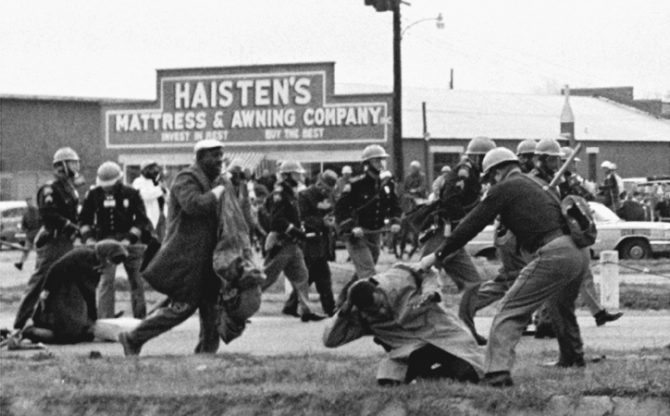
The 14th Amendment to the Constitution (1868) and the 15th Amendment to the Constitution (1870) granted African Americans the right to citizenship and to vote but voters were turned away at the state polling places by white-mandated statutes and inhumane practices. The fight for African Americans to vote went on for nearly one hundred years of legal discrimination. In 1965 the Voting Rights Act, opens a new window was created to prohibit states from using literacy tests and other methods of excluding African Americans from voting. Today, barriers still exist for African Americans to vote such as fewer polling places, lost ballots and rules for extra identification.
Historically, the same difficulties African Americans have faced while exercising their constitutionally-guaranteed right to vote have been encountered and experienced by Native Americans. Long before the formation of the United States Government, Native Americans were self-governing and autonomous.
The Dawes Act of 1887, opens a new window was passed to force assimilation by mandating loss of tribal land and assigning useless land allotments in return before Native Americans, First People, were allowed to vote. As with most U.S. Government generated legal treaties, the benefits promised to the First People never materialized.
Even though in 1870 the 15th Amendment granted U.S. citizens the right to vote regardless of race, Native Americans were not allowed to vote because they were not considered U.S. citizens. The Snyder Act of 1924 finally granted Native Americans full U.S. citizenship and with it the right to vote.
However, another loophole was created that stated it was up to the states to decide who had the right to vote. It took nearly 40 years for all fifty states to allow Native Americans to vote with New Mexico being the last state to ratify enfranchisement in 1962.
The barriers that African Americans and Native Americans faced were many. These included poll taxes, literacy tests, fraud, intimidation, and in some cases murder.
There are a good number of books and resource on the struggles for African Americans to vote. Disappointingly, finding books and resources exclusively dedicated to the struggles of the Native Americans’ path to suffrage was difficult since a preponderance of information can primarily be found in books covering the wider history of Native Americans and in scattered websites.
Many people sacrificed everything for our right to vote, yet the fight for equal access to the ballot box, voting booth, or voting by mail continues today. This list allows for an awareness of what has happened in the past to encourage us to use our voice by voting in the present. It is very important to honor and recognize the long fought road to assuring that you and all U.S. citizens can vote without fear, obstruction, or reprisals. Make your voice count—VOTE.
~Written by Kindred, opens a new window with Many Nations, opens a new window contributing
Read more:

